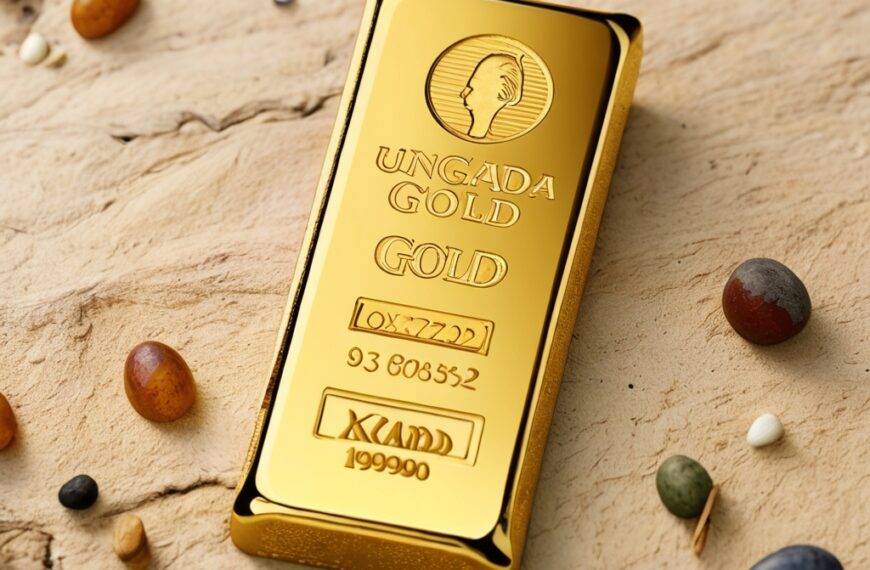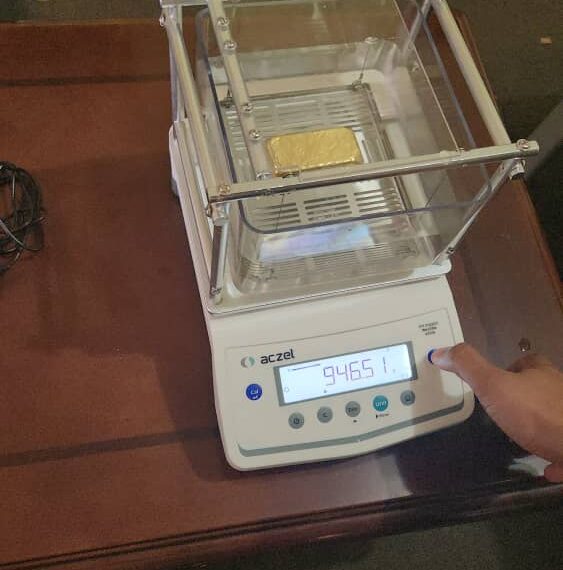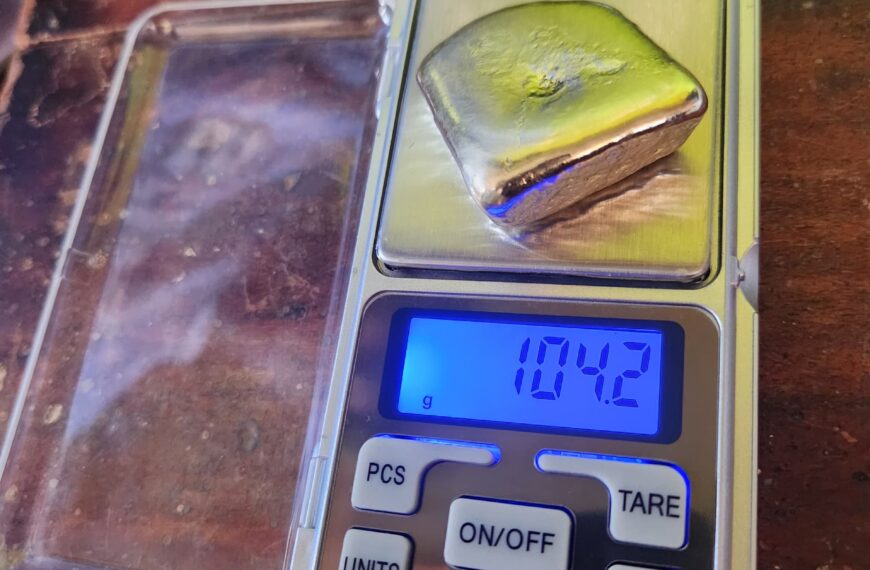A Detailed Overview
Uganda is blessed with rich gold deposits that have made it an attractive destination for local and international investors. However, to tap into these resources legally and sustainably, it’s essential to comply with Uganda’s mining regulations. Ugandan gold mining laws are designed to govern mining operations, promote ethical practices, ensure environmental conservation, and protect the rights of local communities. Understanding these laws is crucial for anyone involved in the gold industry, whether as a miner, trader, or investor.
At Midas Africa Gold Co., we strictly adhere to Uganda’s gold mining laws, ensuring that all our sourcing, refining, and export processes are conducted in compliance with the country’s regulatory framework. In this post, we’ll explore the key aspects of Ugandan gold mining laws, highlighting the licensing process, regulatory bodies, environmental and community guidelines, and the rights and obligations of miners.
Key Regulatory Bodies Governing Gold Mining in Uganda
Uganda’s mining industry is primarily regulated by the Ministry of Energy and Mineral Development (MEMD) and the Directorate of Geological Survey and Mines (DGSM). These government bodies are responsible for formulating policies, issuing mining licenses, monitoring mining activities, and ensuring compliance with national laws. Here’s a closer look at these key regulatory agencies:
- Ministry of Energy and Mineral Development (MEMD): The MEMD is responsible for setting mining policies and strategies that promote sustainable mineral development in Uganda. It oversees mining activities, ensures adherence to regulations, and promotes ethical mining practices.
- Directorate of Geological Survey and Mines (DGSM): The DGSM operates under the MEMD and is directly involved in the management of mineral resources. It issues licenses, conducts geological surveys, monitors mining activities, and enforces mining laws. The DGSM is also responsible for providing information on mineral deposits and ensuring that mining operations do not harm the environment.
- Uganda Revenue Authority (URA): Although not directly involved in mining regulation, the URA plays a crucial role in enforcing the tax laws related to mineral trading and exports. Gold exporters are required to pay taxes and royalties, and the URA ensures compliance with these financial obligations.
Licensing and Permits for Gold Mining
The cornerstone of Ugandan gold mining laws is the licensing system, which ensures that mining activities are conducted legally and responsibly. Anyone wishing to engage in gold mining in Uganda must obtain the appropriate licenses and permits from the DGSM. There are several types of licenses issued under the Mining Act of 2003:
- Prospecting License: This license allows individuals or companies to conduct preliminary exploration activities to locate mineral deposits. The license is usually valid for one year and is renewable upon request.
- Exploration License: Once a mineral deposit is identified, the holder of a prospecting license may apply for an exploration license, which allows them to conduct detailed surveys, sampling, and feasibility studies. The exploration license is typically valid for up to three years and may be renewed.
- Mining Lease: A mining lease is required for full-scale mining operations. This license allows the holder to mine, process, and sell minerals. The lease is valid for up to 21 years and can be renewed based on compliance with mining laws and successful operations.
- Location License: This license is issued to small-scale miners or artisanal miners, allowing them to mine a specific area. It is valid for two years and is renewable. The location license ensures that local miners can legally participate in gold mining while adhering to safety and environmental regulations.
- Mineral Export Permit: For those involved in exporting gold, a mineral export permit is mandatory. The DGSM issues this permit, which details the quantity, purity, and source of the gold being exported. This permit is crucial for ensuring that the gold is sourced and traded legally.
Environmental and Community Guidelines
Ugandan gold mining laws emphasize environmental conservation and the protection of local communities. Environmental regulations are in place to prevent the negative impacts of mining activities on ecosystems, water sources, and agricultural land. Here’s how Uganda’s mining laws address environmental and community concerns:
- Environmental Impact Assessment (EIA): Before obtaining a mining lease, companies must conduct an EIA to evaluate the potential environmental impacts of their mining activities. The EIA report must be submitted to the National Environment Management Authority (NEMA) for review and approval. The report outlines the steps the company will take to mitigate environmental damage and promote sustainable mining practices.
- Waste Management: Mining companies are required to manage waste responsibly, particularly hazardous waste like mercury. Unfortunately, some small-scale miners in Uganda use unsafe methods like mercury extraction, posing severe health risks. At Midas Africa Gold Co., we are actively involved in efforts to educate and support local miners in adopting safer, environmentally friendly refining methods. This intervention aligns with national mining laws that prohibit harmful practices and promote sustainable mining.
- Community Engagement: Uganda’s mining laws require companies to engage with local communities, ensuring that mining activities benefit these communities economically and socially. Mining companies are encouraged to create employment opportunities, support infrastructure development, and invest in community welfare programs. Midas Africa Gold Co. is committed to responsible sourcing and working with local miners to enhance their livelihoods while adhering to legal and ethical standards.
Rights and Obligations of Miners
Ugandan gold mining laws outline the rights and obligations of miners to ensure a fair and regulated industry. Understanding these rights and responsibilities is vital for anyone involved in mining or trading gold in Uganda.
- Rights of Miners:
- Access to Land: Licensed miners have the legal right to access the land specified in their license for exploration and mining purposes. However, they must respect the rights of landowners and negotiate land access agreements.
- Mineral Ownership: Licensed miners have the right to extract and process minerals from their designated area. The mined gold becomes the property of the license holder, subject to taxes and royalties.
- Export Rights: Mining companies with a mineral export permit have the right to export gold, provided they comply with Ugandan gold mining laws and tax regulations.
- Obligations of Miners:
- Compliance with Laws: Miners are obligated to operate within the legal framework, including adhering to environmental and safety regulations, labor laws, and tax obligations.
- Payment of Royalties and Taxes: Miners must pay royalties and taxes on the minerals they extract and sell. The Uganda Revenue Authority (URA) enforces these financial obligations to ensure that mining contributes to national revenue.
- Environmental Conservation: Miners are required to implement environmental conservation measures, including land rehabilitation after mining operations. Failure to comply with environmental regulations can result in license revocation and legal penalties.
How Midas Africa Gold Co. Complies with Ugandan Gold Mining Laws
At Midas Africa Gold Co., we are fully committed to complying with Uganda‘n‘s gold mining laws in every aspect of our operations. We obtain all necessary licenses and permits, engage in ethical sourcing, conduct environmental impact assessments, and pay our dues in royalties and taxes. Our efforts to promote responsible mining practices and support local communities align with Uganda’s regulatory requirements, ensuring that our business operates within a legal and sustainable framework.
Buy Ethically Sourced Gold with Confidence
Understanding Uganda‘s gold mining laws is crucial for anyone looking to invest in the gold market in Uganda. Compliance ensures not only legal operations but also the sustainability of the mining industry and the welfare of local communities.
Ready to invest in ethically sourced gold? At Midas Africa Gold Co., we adhere strictly to Uganda’s mining regulations, ensuring that our gold products are legally and ethically sourced. Contact us today to explore our high-quality gold products and learn more about our commitment to responsible mining. Reach out via our website, email, or WhatsApp to make a secure and compliant investment in Uganda’s gold industry.








[…] Related: Ugandan Gold Mining Laws […]